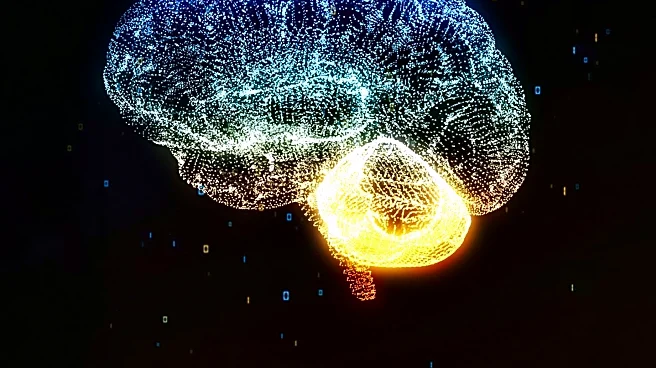What's Happening?
A recent study published in Nature Communications, known as the DREAM project, has revealed that parts of the brain may remain alert during deep sleep stages, challenging the traditional view that dreaming
is exclusive to REM sleep. The study, coordinated by Monash University, analyzed 2,643 awakenings from 505 volunteers across 20 studies in 13 countries. It found that while 85% of REM awakenings involved dreams, 40% to 60% of NREM awakenings also included dream experiences. This suggests that the brain can enter an 'awake-like' state during NREM sleep, indicating that consciousness during sleep is more of a spectrum than a binary state.
Why It's Important?
The findings from the DREAM project have significant implications for understanding sleep and its impact on health. The ability to dream during NREM sleep suggests that the brain remains active in ways previously unrecognized, which could influence how sleep disorders are diagnosed and treated. Additionally, the study's use of artificial intelligence to predict dreaming based on brain activity could lead to new non-invasive tools for monitoring sleep and consciousness. This research also hints at potential early warning signs for cognitive disorders like Alzheimer's disease, as difficulty reaching REM sleep may be indicative of such conditions.
What's Next?
The DREAM project's findings open avenues for further research into sleep and consciousness. Future studies may focus on refining AI models to improve dream detection accuracy and explore the medical applications of these technologies. Researchers may also investigate the implications of NREM dreaming for cognitive health and its potential role in diagnosing neurodegenerative diseases. As the understanding of sleep stages evolves, it could lead to advancements in sleep therapy and interventions aimed at improving mental health and cognitive function.
Beyond the Headlines
The study's revelation that dreaming can occur outside of REM sleep challenges long-held beliefs about sleep architecture and consciousness. This could lead to a reevaluation of sleep's role in cognitive processing and memory consolidation. The ethical implications of using AI to monitor dreams also warrant consideration, particularly regarding privacy and consent. As technology advances, society may need to address how such tools are used and regulated.









